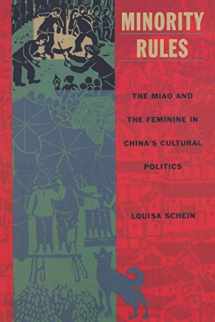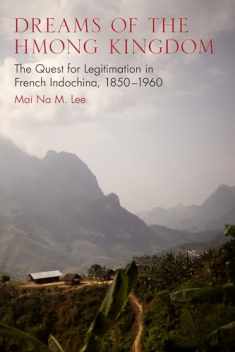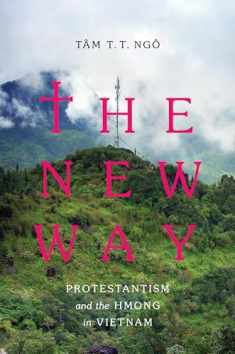
Minority Rules: The Miao and the Feminine in China's Cultural Politics (Body, Commodity, Text)
ISBN-13:
9780822324447
ISBN-10:
082232444X
Edition:
Illustrated
Author:
Louisa Schein
Publication date:
2000
Publisher:
Duke University Press Books
Format:
Paperback
384 pages
Category:
China
,
Asian History
,
Women's Studies
,
Cultural
,
Anthropology
,
Anthropology
,
Behavioral Sciences
FREE US shipping
Book details
ISBN-13:
9780822324447
ISBN-10:
082232444X
Edition:
Illustrated
Author:
Louisa Schein
Publication date:
2000
Publisher:
Duke University Press Books
Format:
Paperback
384 pages
Category:
China
,
Asian History
,
Women's Studies
,
Cultural
,
Anthropology
,
Anthropology
,
Behavioral Sciences
Summary
Minority Rules: The Miao and the Feminine in China's Cultural Politics (Body, Commodity, Text) (ISBN-13: 9780822324447 and ISBN-10: 082232444X), written by authors
Louisa Schein, was published by Duke University Press Books in 2000.
With an overall rating of 4.5 stars, it's a notable title among other
China
(Asian History, Women's Studies, Cultural, Anthropology, Anthropology, Behavioral Sciences) books. You can easily purchase or rent Minority Rules: The Miao and the Feminine in China's Cultural Politics (Body, Commodity, Text) (Paperback) from BooksRun,
along with many other new and used
China
books
and textbooks.
And, if you're looking to sell your copy, our current buyback offer is $0.3.
Description
Minority Rules is an ethnography of a Chinese people known as the Miao, a group long consigned to the remote highlands and considered backward by other Chinese. Now the nation’s fifth largest minority, the Miao number nearly eight million people speaking various dialects and spread out over seven provinces. In a theoretically innovative work that combines methods from both anthropology and cultural studies, Louisa Schein examines the ways Miao ethnicity is constructed and reworked by the state, by non-state elites, and by the Miao themselves, all in the context of China’s postsocialist reforms and its increasing exchange and fascination with the West. She offers eloquently argued interventions into debates over nationalism, ethnic subjectivity, and the ethnography of the state.
Posing questions about gender, cultural politics, and identity, Schein examines how non-Miao people help to create Miao ethnicity by depicting them as both feminized keepers of Chinese tradition and as exotic others against which dominant groups can assert their own modernity. In representing and consuming aspects of their own culture, Miao distance themselves from the idea that they are less than modern. Thus, Schein explains, everyday practices, village rituals, journalistic encounters, and tourism events are not just moments of cultural production but also performances of modernity through which others are made primitive. Schein finds that these moments frequently highlight internal differences among the Miao and demonstrates how not only minorities but more generally peasants and women offer a valuable key to understanding China as it renegotiates its place in the global order.
Posing questions about gender, cultural politics, and identity, Schein examines how non-Miao people help to create Miao ethnicity by depicting them as both feminized keepers of Chinese tradition and as exotic others against which dominant groups can assert their own modernity. In representing and consuming aspects of their own culture, Miao distance themselves from the idea that they are less than modern. Thus, Schein explains, everyday practices, village rituals, journalistic encounters, and tourism events are not just moments of cultural production but also performances of modernity through which others are made primitive. Schein finds that these moments frequently highlight internal differences among the Miao and demonstrates how not only minorities but more generally peasants and women offer a valuable key to understanding China as it renegotiates its place in the global order.


We would LOVE it if you could help us and other readers by reviewing the book
Book review

Congratulations! We have received your book review.
{user}
{createdAt}
by {truncated_author}




